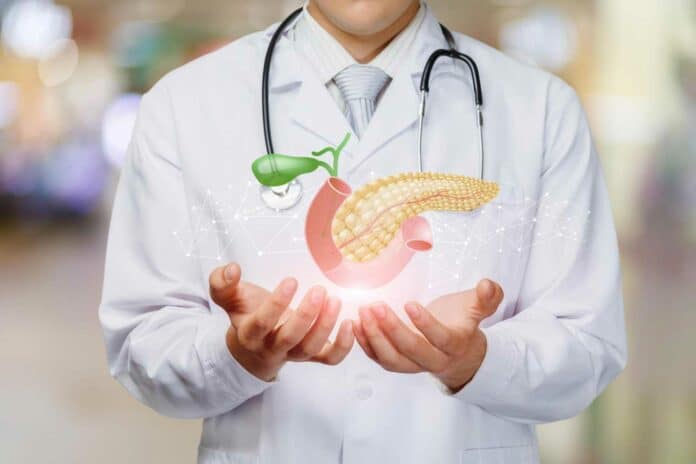Researchers are getting closer to making insulin in pancreatic stem cells so that people won’t need frequent insulin shots. Researchers from Baker Heart and Diabetes Institute found that insulin cells produced in just 48 hours can respond to glucose and make insulin when stimulated by FDA-approved drugs. This method works in people aged 7 to 61, giving valuable insights into how beta cells can regenerate.
Professor Sam El-Osta’s team demonstrated a breakthrough in diabetes treatment using pancreatic cells from child and adult donors. They regenerated insulin-producing cells destroyed in type 1 diabetes, turning them into functional insulin-secreting cells that respond to glucose.
The team used FDA-approved inhibitors for rare cancers to restore insulin production in diabetic pancreatic cells rapidly. Unlike current diabetes drugs that control glucose levels without stopping cell destruction, this approach aims to be the first disease-modifying treatment for type 1 diabetes, potentially freeing patients from constant insulin injections.
This new treatment offers hope for Australians with insulin-dependent diabetes, making up 30% of those with type 2 diabetes. Creating medications that restore pancreas function tackles the problem of a shortage of organ donors.
He said, “We consider this regenerative approach an important advance towards clinical development,” Professor El-Osta said. “Until now, the regenerative process has been incidental and lacking confirmation; more importantly, the epigenetic mechanisms that govern such regeneration in humans remain poorly understood.”
This study found that just 48 hours of using small molecule inhibitors can revive insulin production in damaged pancreatic cells. Dr. Keith Al-Hasani, a JDRF Senior Research Fellow, stated that the next phase involves testing this regenerative method in preclinical models.
The goal is to turn these inhibitors into drugs that can restore insulin production in individuals with diabetes. Given the urgency, with over 530 million adults having diabetes (expected to reach 643 million by 2030), swift translation of this research is crucial.
Journal reference:
- Al-Hasani, K., Marikar, S.N., Kaipananickal, H. et al. EZH2 inhibitors promote β-like cell regeneration in young and adult type 1 diabetes donors. Signal Transduction and Targeted Therapy. DOI: 10.1038/s41392-023-01707-x.
